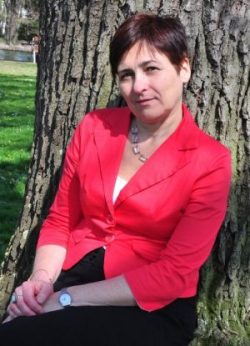Dear readers!
Autumn is a time of reflection and contemplation and so – appropriate to the time of the year – we publish in this new virtual issue a couple of articles that look thoughtfully – back and forth – and ask many questions that concern all nations.
A major issue in modern philosophy, whether we are talking about the philosophy Habermas, H. Putnam, Appel or any modern Arab philosopher, is the search for truth. Mohamed Mesbahi, professor of philosophy at the university of Rabat, analyzes the concept of truth and its political dimensions from a philosophic point of view. First he describes its characteristics (plausibility, neutrality, uniqueness and truth as an instrument for liberty). Next, Mesbahi demonstrates by example of Morocco how politicians misuse the meaning of truth to their own advantage. Why is it so difficult for the Arab world to catch up with modernism? What are the hindrances of establishing it and how can they be overcome? Some more deep questions that want an answer. Abdallah Turkmani, a Syrian author living in Tunesia, examines the historical, economical, social, cultural and political reasons for the crisis and concludes that pushing up democracy is first priority to be able to break out of isolation in a globally playing world. Finally the famous modern Syrian philosopher Tayyib Tisini wonders – in view of the increasing international pressure on Islam – whether we should search for the solution starting out from current Islam as it is lived in reality or from Islam as it has been delivered in the historic scripts? Islam is ideology as well as it embodies concrete economical interests. The apologetically structured article shows a very differentiated image of Islam by analyzing the issue of pluralism and individualism in Islam. Hamid Fadlalla, a Sudanese physician and human rights activist living in Berlin/Germany, reports about the “Centre for Torture Victims” in Berlin.
One of the Memorials for the victims of atomic bomb is the Hiroshima Peace Memorial Museum in Japan. The Egyptian researcher Khayri Douma, who worked a couple of years as lecturer of Arabic in Osaka/Japan, has translated into Arabic testimonies of survivors, which are at disposal for the visitors of the museum as “heard evidence”.
The meetings of cultures and cultural crossings of various regions of the world in literature and fine arts is the subject of Durgham al-Dabak’s article. A poem by Goethe, a picture of Eugene Delacroix and an Epos by the British Poet Lord Byron serve the author as example for Europe’s fascination for the orient to demonstrate that the meetings of cultures can lead to something positive.We complete this autumn issue with two Poems by Rainer Maria Rilke on autumn, “Herbst” and “Herbsttag”, translated into Arabic by Hakam Abdelhadi.I hope you enjoy your reading!20.10.2005Abier Bushnaq
(Editor-in-chief)



